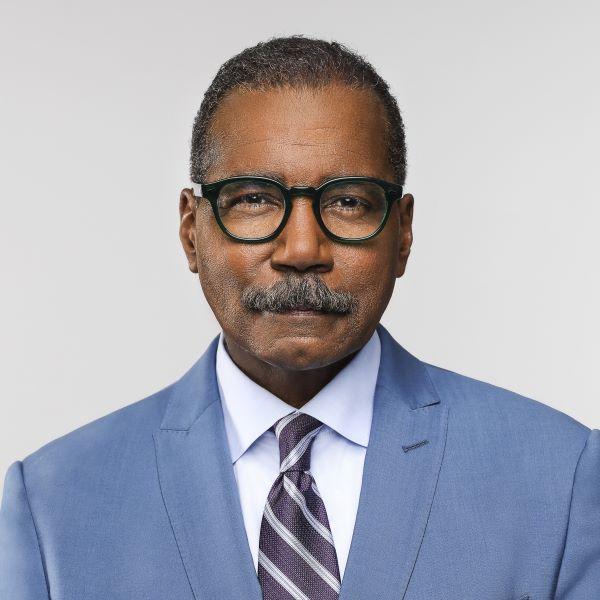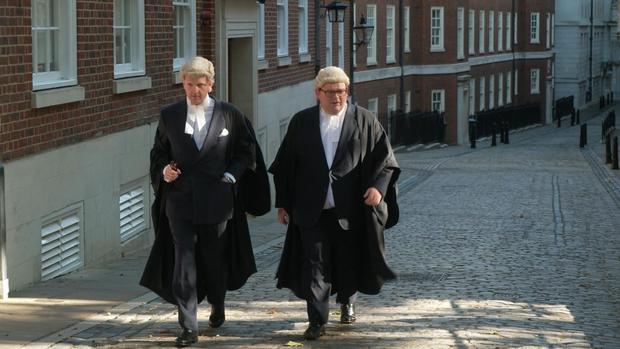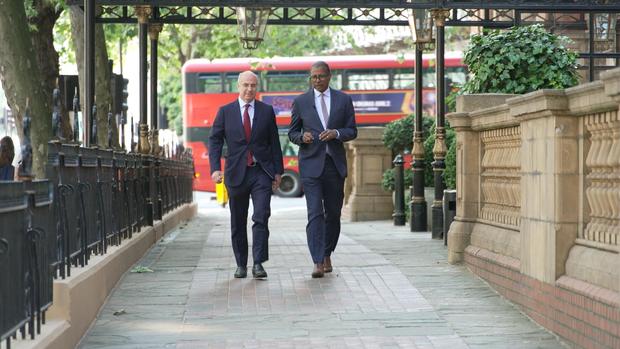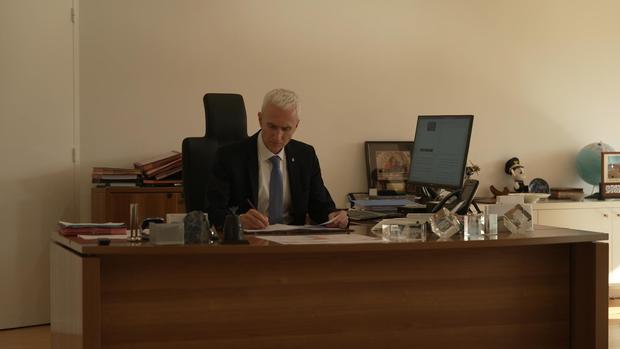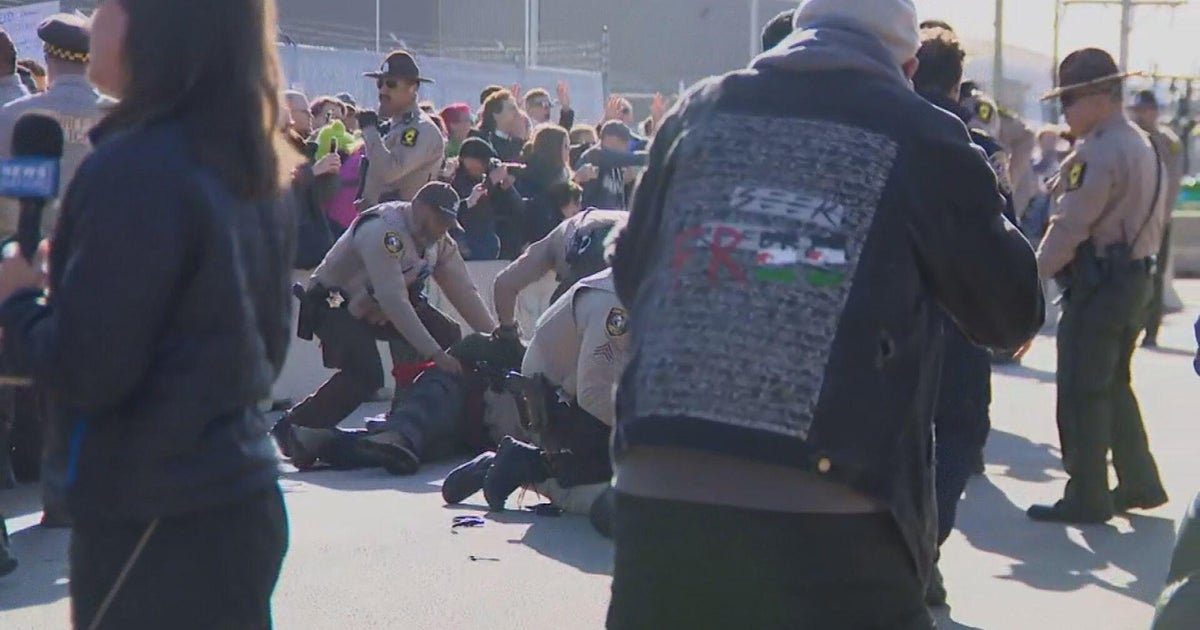Interpol — the international police organization — accused of doing the "dirty work" of authoritarian members
Interpol, the 100-year-old international police organization, must learn to police itself if it's going to survive, critics have warned.
Interpol famously issues red notices, which alert law enforcement worldwide about wanted fugitives. A number of Interpol's 196 member countries have abused red notices, using fabricated charges to try and locate, detain and extradite people they want to get their hands on, such as political dissidents or innocent people who've angered powerful officials. While each red notice is vetted to ensure it doesn't violate rules forbidding the use of Interpol for political, religious or racial persecution, the vetting is not foolproof.
When red notices are abused
Russia accounts for nearly half of the red notices Interpol makes public. Critics of Interpol say that some of the information Russia gives Interpol is suspect. Russia is known for its brazen attempts to manipulate Interpol's system, British barrister Rhys Davies said.
Davies, along with lawyer Ben Keith, helps people who've been accused of crimes to navigate Interpol's complex bureaucracy. Davies and Keith say Interpol is loath to crack down on misuse because it wants everyone "in their club."
"When a country's clearly, egregiously breaching the rules and manipulating the system on a gross scale, they don't suspend them," Keith said.
Both barristers concede Interpol does a lot of good, despite a yearly budget of $170 million, which is about the size of the budget of the Omaha Police Department. Still, they're worried about where the agency fails.
"We're concerned about the rule of law and human rights, and Interpol are concerned about trying to catch people who are allegedly criminals," Keith said. "A lot of innocent people get caught up in the middle."
Members of the U.S. Congress, the European Union, and human rights groups have labeled Russia a serial abuser of red notices.
"The famous example that we often talk about is Bill Browder," Davies said.
Who is Bill Browder?
Financier Bill Browder has spent the last 11 years on the run from President Vladimir Putin. Browder, wary wherever he goes, said Russia has used Interpol eight times to try and arrest him.
He and his lawyer, Sergei Magnitsky, exposed corruption by Russian government officials. Magnitsky was arrested and died in a Moscow prison in 2009.
Browder was convicted in absentia on suspect fraud charges. The Kremlin turned to Interpol to try to bring him in.
"I must hold the Guinness Book of World Records for the number of times they've tried to abuse Interpol," Browder said.
His closest call came in 2018 when he was visiting Spain. Browder said Spanish police arrested him at his hotel. The hotel manager told Browder to collect his things from the bedroom. Once Browder was out of sight, he grabbed his phone and posted on social media.
"At the time, I had about 100,000 followers. And I tweeted out, 'Urgent. Being arrested in Madrid, Spain right now,'" Browder said.
As he sat in the police car, he was able to post again after taking a picture from the back seat: "In the back of the Spanish police car going to the station on the Russian arrest warrant."
"I'm hoping to wake the whole world up to the fact that I'm being arrested," Browder said. "I didn't want to be slipped into the back of a, you know, Russian jet and sent off without anyone knowing where I was."
There was no doubt in his mind that he'd be killed if he was sent back to Russia, Browder said.
As he stayed locked in a holding cell, Browder's tweets traveled around the world. He said the social media posts helped get him released.
"The chief of police comes back with a translator and says 'We've just gotten off the phone with Interpol general secretariat in Lyon. The warrant is no longer valid. You're free to go,'" Browder said.
Why red notice abusers aren't suspended
Russia is hardly the only country to use Interpol to do its dirty work. Bahrain, for example, used Interpol to nab a professional soccer player, an outspoken critic of the government, at the Bangkok airport in 2018. He spent two-and-a-half months in a Thai prison. China used a red notice to arrest a Chinese Uyghur activist in Morocco in 2021. He remains in prison awaiting extradition. And Qatar issued a red notice for a Scottish engineer in 2022 over a disputed $5,000 bank loan. He spent two months in an Iraqi prison.
All of these red notices were eventually rescinded, but not before lives were upended.
Interpol is working to ensure that each piece of information in its databases is compliant with agency rules and regulations, Secretary-General Jürgen Stock said.
"[I'm] not saying that the system is perfect," he said. "We see wrong decisions on a national level. And we have seen wrong decisions also in Interpol."
As Interpol's secretary general, Stock manages operations in Lyon and regional offices on five continents. Around 900 employees work at the Lyon headquarters. Many are police officers on loan from member countries chosen for their expertise. They don't carry guns or make arrests, but rather collect and share information with law enforcement agencies around the globe.
In 2022, 304 of nearly 24,000 Interpol wanted person alerts were denied or deleted after they were found to violate the organization's rules. The agency declined to share which countries were the worst offenders. Stock isn't interested in naming and shaming offenders.
"Because we believe this is not in the interest of international police cooperation. This is not in the interest of making the world a safer place," he said.
Russia remains in Interpol, even as the United Nations investigates the country for war crimes in Ukraine.
"Interpol introduced some measures when the conflict started to avoid any political abuse of our systems," Stock said. "But we also decided to keep let's say the channels of information open. "
Stock said Interpol's role is to collect and share information, even with countries engaged in conflicts and diplomatic difficulties.
"Our decision is not to police a member country in terms of their human rights agenda," he said. "That's not our role as a technical police organization."
